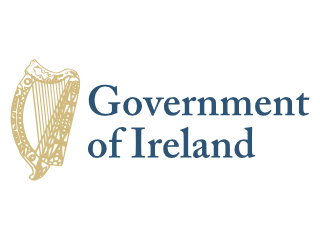Celtic tribes arrived on the island between 600 and 150 B.C. Invasions by Norsemen that began in the late 8th century were finally ended when King Brian BORU defeated the Danes in 1014. Norman invasions began in the 12th century and set off more than seven centuries of Anglo-Irish struggle marked by fierce rebellions and harsh repressions. The Irish famine of the mid-19th century saw the population of the island drop by one third through starvation and emigration. For more than a century after that the population of the island continued to fall only to begin growing again in the 1960s. Over the last 50 years, Ireland's high birthrate has made it demographically one of the youngest populations in the EU. The modern Irish state traces its origins to the failed 1916 Easter Monday Uprising that touched off several years of guerrilla warfare resulting in independence from the UK in 1921 for 26 southern counties; six northern (Ulster) counties remained part of the UK. Unresolved issues in Northern Ireland erupted into years of violence known as the "Troubles" that began in the 1960s. The Government of Ireland was part of a process along with the UK and US Governments that helped broker what is known as The Good Friday Agreement in Northern Ireland in 1998. This initiated a new phase of cooperation between the Irish and British Governments. Ireland was neutral in World War II and continues its policy of military neutrality. Ireland joined the European Community in 1973 and the euro-zone currency union in 1999. The economic boom years of the Celtic Tiger (1995-2007) saw rapid economic growth, which came to an abrupt end in 2008 with the meltdown of the Irish banking system. Today the economy is recovering, fueled by large and growing foreign direct investment, especially from US multi-nationals.
Ireland is a parliamentary republic.
Source: CIA World Factbook
Members:
Resources
Displaying 31 - 35 of 137European Communities (Foreshore) Regulations 2009 (S.I. No. 404 of 2009).
These Regulations amend provisions of the Foreshore Act, inserted by subsequent legislation, insofar as they relate to applications under that Act and its amendments for consents which require an Environmental Impact Statement.
National Regulation on Territorial Spatial Planning.
The Regulation, which consists of 15 articles, regulates provisions on territorial spatial planning.
Statute Law Revision Act 2012 (No. 19 of 2012).
This Act provides for a revisions of Laws notably in the field of drainage, land reclamation and improvement of lands.
Environment, Heritage and Local Government (Delegation of Ministerial Functions) (No. 2) Order 2008 (S.I. No. 225 of 2008).
This Order provides for the delegation of the powers and duties of the Minister for the Environment, Heritage and Local Government conferred on him or her by or under the enactments specified in the Schedule to the Minister of State at the Department of the Environment, Heritage and Local Government. Acts include the Landlord and Tenant (Amendment) Act 1980.
Planning and Development Regulations 2008 (S.I. No. 235 of 2008).
These Regulations amend the Planning and Development Regulations 2001 to extend the list of exempted development including renewable technologies for industrial buildings, business premises and agricultural holdings, and to define "biomass".
Amends: Planning and Development Regulations, 2001 (S.I. No. 600 of 2001). (2001-12-19)


